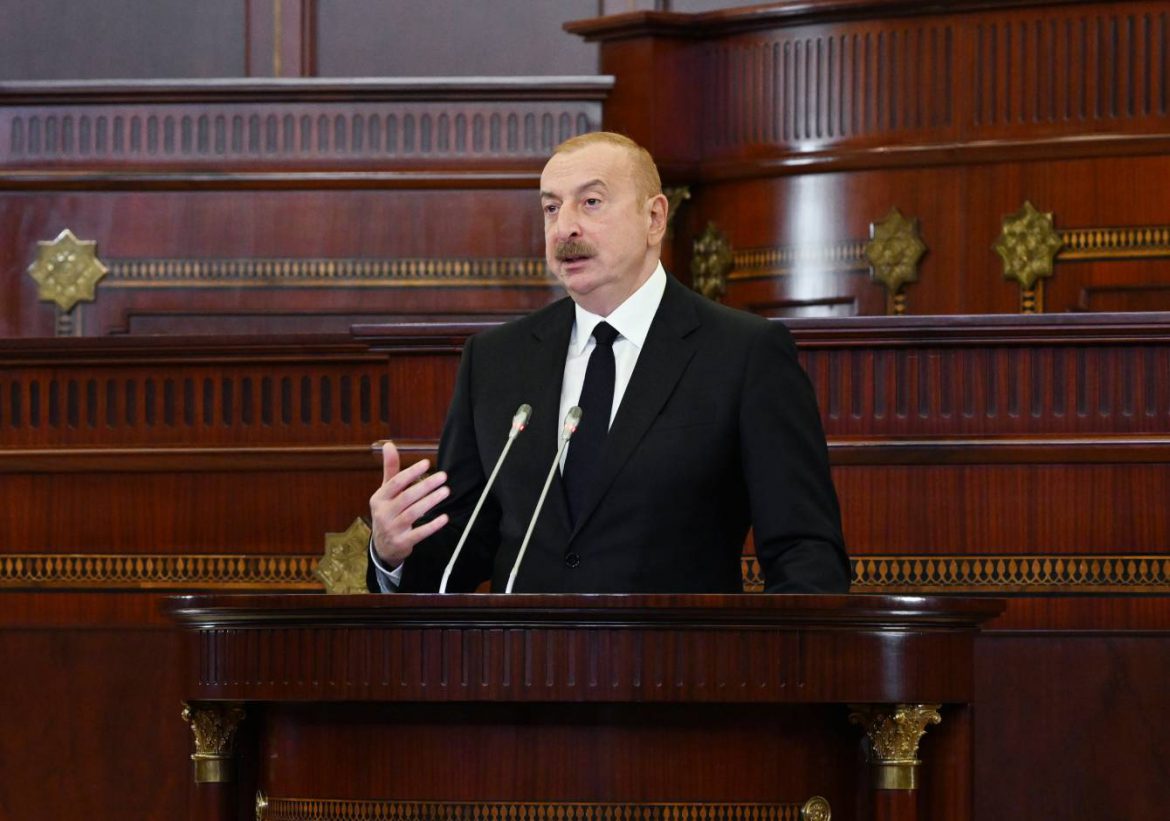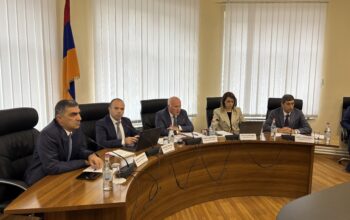Azerbaijani President Ilham Aliyev outlined several preconditions for signing a peace agreement with Armenia during an interview with a Russian state broadcaster, as publicized on Wednesday. These demands reflect a growing complexity in the ongoing Armenian-Azerbaijani negotiations.
Aliyev emphasized that Armenia must amend its constitution, ensure the return of Azerbaijanis displaced in the late 1980s, halt arms acquisitions, and agree to dissolve the OSCE Minsk Group on Nagorno-Karabakh. He confirmed that two unresolved issues remain key obstacles to finalizing a bilateral peace treaty.
Baku is pressing for clauses in the treaty requiring both sides to drop international lawsuits filed against each other and prohibiting the presence of third-party monitors or forces on the Armenian-Azerbaijani border.
“Under the guise of so-called European monitors, a NATO infrastructure has been created from the Armenian side on the border with our country,” claimed Aliyev, despite Azerbaijan’s close military ties with Turkey, a key NATO member.
Prime Minister Nikol Pashinyan recently proposed a compromise to restrict EU monitors to specific demarcated border sections. However, Baku continues to insist on their full withdrawal.
Constitutional Demands and Arms Accusations
Aliyev further demanded constitutional changes in Armenia, arguing that its current framework implies territorial claims against Azerbaijan. Additionally, he criticized Armenia’s ongoing arms purchases, claiming they threaten Azerbaijani security.
The Azerbaijani leader accused Armenia of receiving weapons from France, India, and the United States, although he provided no evidence to support these allegations in the case of the United States.
“We cannot just act like observers. We have repeatedly told Armenia and its sponsors in the U.S. State Department that the armament must stop. But unfortunately, they do not listen to us, and Armenia’s armament is advancing rapidly,” Aliyev said. He warned that Western nations would not assist Armenia militarily in the event of renewed conflict.
Military Disparity and Regional Tensions
By setting demands that range from constitutional amendments to disbanding international mediation structures, Azerbaijan appears to be constructing obstacles rather than seeking solutions. These preconditions—combined with Aliyev’s insistence on unilateral concessions, his unfounded accusations about arms shipments, and Azerbaijan’s disproportionate military buildup—paint a picture of a government uninterested in achieving a genuine peace.
Instead, these demands seem tailored to maintain perpetual leverage over Armenia and undermine any possibility of equal footing in negotiations. Far from a framework for resolution, Azerbaijan’s strategy reveals a clear preference for dominance over dialogue, casting serious doubt on its commitment to peace in the region.




